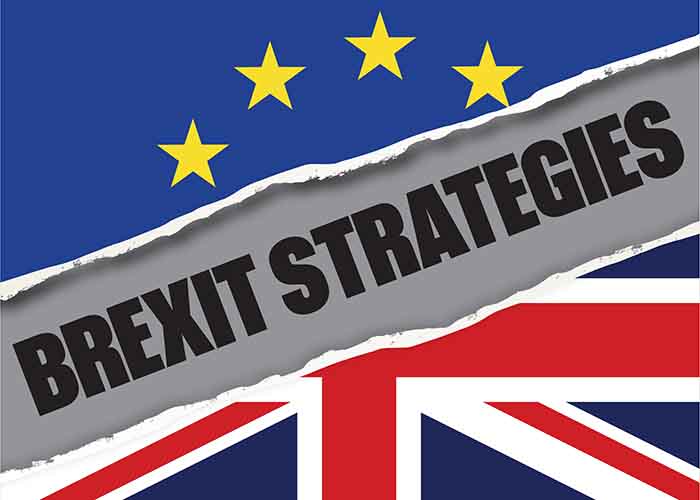The debate shifted almost immediately to whether a Brexit dividend would be available due to the UK not paying into the EU as a full member or whether the economic disruption would actually mean less revenue was available.
Thinktank the Institute for Fiscal Studies, in particular, insisted there was no dividend.
However, what is likely to be of interest to financial advisers wherever they stand, is that almost all commentators agree – dividend or not – that the extra funding will require higher taxes and/or more borrowing.
Behind the scenes, the Chancellor Philip Hammond was reportedly rather unhappy telling cabinet ministers that with such an NHS boost, there would be very little money for anything else.
By mid week, stories were appearing in the UK tabloids attributed to ‘Treasury’ or ‘government’ sources, suggesting that most of the burden would be shouldered by the better-off with less well-off workers in particular protected.
Pensions tinkering
Advisers will certainly recognise some of the ideas.
First, and perhaps unsurprisingly, it was suggested that higher rate pension tax relief could be abolished raising as much as £10bn, unsettling advisers who specialise in the pension area.
Cavendish Ware Wealth director Roy McLoughlin says: “What we really want is no more tinkering with pensions. That is our fear. It is as bad enough as it is. We need to encourage more saving not less.”
The stories also suggested that thought was being given to abolishing the upper earnings limit on national insurance potentially raising as much as £11bn but meaning that millions of wealthy people could face a substantial tax hike.
Another idea mooted by various commentators is requiring pensioners to pay national insurance, though advisers on social media have queried the fairness of this unless pensioners accrue more state pension entitlement which rather undermines the case for that change.
Others suggested a wealth tax although it isn’t clear exactly what ‘wealth’ is being talked about.
The fairest place to start
The final big ticket tax measure could involve IHT, though this has been a highly politicised tax in the last 10 years. A Tory promise to reform IHT is widely credited with convincing then prime minister Gordon Brown not to call an early election which some felt he could have won.
Thus tinkering with IHT or perhaps the residential nil rate band, even as it is still being phased in, would represent a pretty substantial U-turn.
One adviser, who wished to remain anonymous, did say he felt that IHT was probably the fairest place to start rather than taxing employment or savings regardless of the wrapper used.
Tax tail wagging the dog
Most advisers will unsurprisingly take a firmly client-centric view.
Plan Money director Peter Chadborn says: “Our view is you don’t do anything until it has happened. Don’t speculate. In the same way as I am wary of saying I think this is going to happen with the market, when there are tax changes or legislative changes being mooted, I think it is a dangerous game for us to try and get clients to preempt things.”
Perceptive Financial Planning director Phil Billingham adds: “You have to keep an eye on things, but it comes down to the tax tail not wagging the financial planning dog. You can continually spend your time adjusting things and doing stuff because of what might happen from a tax point of view but most of the time it never happens.
“Look at talk of removing higher-rate relief or taxing tax-free cash. The rumours outweigh what actually happens by as much as 10 to one. When it does happen, you work out which clients are most affected and adjust things. The message to clients is that we are not looking at your portfolio for tax reasons. It has an objective so, for example, supporting your lifestyle in retirement. We tend not to be very tax driven. History tells us that portfolios and practices that have been more tax driven tend to do less well and be more vulnerable.”
Wealthy voters
But wouldn’t a substantial wealth tax potentially cause clients a lot of disruption?
Billingham adds: “The UK ‘wealth’ is held in two pots – residential property – disproportionately so – and it’s held in pensions. Despite the doom and gloom we have fairly well-funded pensions. Attacking either of those pots is a guaranteed election loser because you are attacking the people who have influence, power and who vote.
“I would suggest that it constrains the Chancellor’s hand. The baby boomers and pre-pensioners may have have hundreds of thousands of pounds in pension pots, and houses worth a million. Those people will not take it lightly, if the government taxes what they feel is their fair due.”
Interestingly with talk of increasing what might be called traditional taxes, Jeremy Edwards, a partner at Martin Redman Partners, would like to see more radical solutions.
Legalise cannabis
Speaking in a personal capacity, Edwards says: “I would love them to do something radical, but I fear it will just be the usual fiddling around the edges.
“Following on from Canada, I would like cannabis to be made legal and then taxed on a par with cigarettes and alcohol, with the proceeds hypothecated to the NHS. All other sin taxes, like cigarettes, alcohol and gambling would also be for the benefit of the NHS. I would suggest taxes on consumption for goods made outside the UK with no tariffs on goods coming in, but a sales tax on consumption.”
He also suggests a comprehensive land tax, so that land holders cannot just hold passively for gain at minimum cost, it either has to be for public good, (conservation, recreation, strategic or public asset), agriculture, housing or industry.
“I would also end relief for unoccupied premises after 12 months, no relief for taking roofs off factories or making residential property uninhabitable. Use it or lose it to a development authority.”








